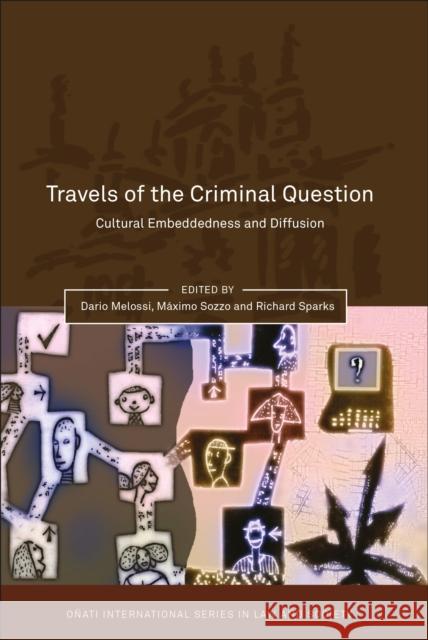Travels of the Criminal Question: Cultural Embeddedness and Diffusion » książka
Travels of the Criminal Question: Cultural Embeddedness and Diffusion
ISBN-13: 9781849460767 / Angielski / Twarda / 2011 / 234 str.
Travels of the Criminal Question: Cultural Embeddedness and Diffusion
ISBN-13: 9781849460767 / Angielski / Twarda / 2011 / 234 str.
(netto: 441,90 VAT: 5%)
Najniższa cena z 30 dni: 446,19
ok. 30 dni roboczych.
Darmowa dostawa!
The expression 'the criminal question' does not at present have much currency in English language criminology. The term was carried across from Italian debates about the orientation of criminology, and, in particular, debates about what came to be called critical criminology. One definition offered early in the debate described it as 'an area constituted by actions, institutions, policies, and discourses whose boundaries shift.' According to this writer, crime - and the cultural and symbolic significance carried by law and criminal justice - is an integral aspect of the criminal question. 'The criminal question' draws attention to the specific location and constitution of a given field of forces, as well as the themes, issues, dilemmas, and debates that compose it. At the same time, it enables connections to be made between these embedded realities and the wider - conceivably global - contours of influence and flows of power with which it connects. This in turn raises many questions. How far do the responses to crime and punishment internationally flow from and owe their contemporary shape to the cultural and economic transformations now widely known as 'globalization?' How can something that is - in significant ways - embedded, situated, and locally produced also travel? What is not in doubt is that it does travel and travel with serious consequences. The international circulation of discourses and practices has become a pressing issue for scholars who try to understand their operation in their own particular cultural contexts. Travels of the Criminal Question is a collection of essays with a constructive comparative view of these tendencies to convergence and divergence, looking at the relationship between crime and punishment and globalization. (Series: Onati International Series in Law and Society)











